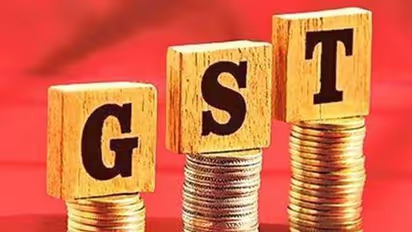Businesses with Rs 100 cr turnover to have new GST Rules from May 1; Check details

Synopsis
Companies must upload their electronic invoices to the Invoice Registration Portal (IRP) within seven days of the invoice's issuance.
New Delhi: According to the new regulations, starting on May 1, companies having a revenue of Rs 100 crore or more must upload their electronic invoices to the Invoice Registration Portal (IRP) within seven days of the invoice's issuance.
The IRP is used to confirm whether invoices are genuine. Every GST invoice has a specific Invoice Reference Number that is generated and assigned using this system.
Also read: Aryan Khan's directorial debut will be 6 episode web-series; know details
“To ensure timely compliance, taxpayers in this category will not be allowed to report invoices older than 7 days on the date of reporting,” GST Network (GSTN) said.
It noted that this restriction will apply to invoices and that there will be no time restriction on reporting debit/credit notes.
The GSTN stated that an invoice with a date of April 1, 2023 cannot be reported after April 8, 2023 as an example of how the new procedure will operate. This is so that users can't report the invoice after the 7-day window has passed due to the validation system integrated within the IRP. As a result, the GSTN added, it is crucial for all qualified enterprises to record the invoice within the allotted 7 days.
Businesses cannot claim an input tax credit under GST rules if invoices are not posted to the IRP.
According to experts, the new regulation will help the government discourage big businesses from retroactively submitting electronic invoices. There is a possibility that the government will eventually apply the rule to other businesses with smaller turnover.
For all B2B transactions, businesses having a turnover of Rs 10 crore or more are currently required to generate electronic invoices. E-invoicing for business-to-business (B2B) transactions was made essential under the Goods and Services Tax (GST) law for enterprises with a turnover of above Rs 500 crore starting on October 1, 2020, and later extended to those with a revenue of over Rs 100 crore starting on January 1, 2021.
Stay updated with all the latest Business News, including market trends, Share Market News, stock updates, taxation, IPOs, banking, finance, real estate, savings, and investments. Track daily Gold Price changes, updates on DA Hike, and the latest developments on the 8th Pay Commission. Get in-depth analysis, expert opinions, and real-time updates to make informed financial decisions. Download the Asianet News Official App from the Android Play Store and iPhone App Store to stay ahead in business.